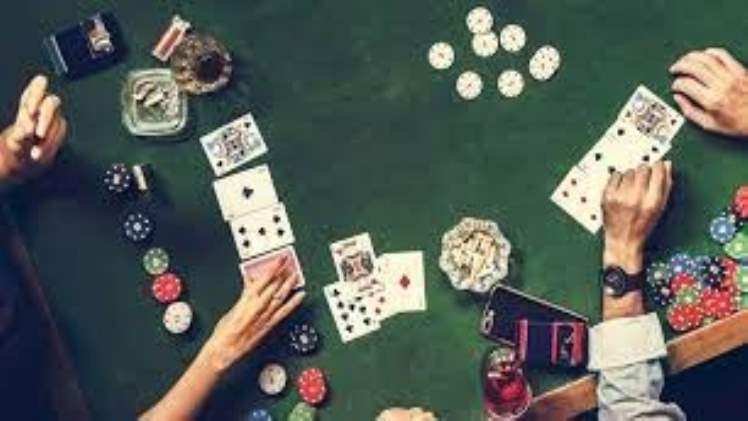Gambling and Substance Abuse

Substance abuse and gambling go hand in hand, and the former should always be treated first. Prescription drugs provide a “high” when taking more than prescribed. Problem gamblers often turn to prescription drugs for that high. Substance abuse is also rampant among recovering gamblers. Inpatient treatment centers are always advisable for gamblers. Many medications are addictive and can cause overdose. To avoid these problems, seeking help in an inpatient rehab facility is essential.
Read More: Drugdtore Makeup – Beauty on a Tight Budget
Problem gambling affects people of all ages
Research has shown that problem gambling can lead to depression, anxiety, self-harm, and criminal activity in young adults. These outcomes were more common among problem gamblers than among those without a problem-gambling history. Problem gamblers are also significantly more likely to engage in other addictive behaviors, such as smoking, using illicit drugs, or alcohol. In the United States, about three-fourths of employed adults and self-employed people reported problem gambling during the past year. The prevalence rates for problem gambling among young adults were lowest among students and unemployed persons who were not out of work for more than a year.
The negative impacts of problem gambling are often not immediately noticeable, but they can be devastating for a person’s social and professional life. A gambling disorder can result in damaged relationships, financial problems, and even mental health issues. The impact of this disorder can be devastating to the person suffering from it, and their family and friends. Fortunately, there are treatment options available for problem gamblers. Here are some ways to cope with this devastating condition.
It is an impulse-control disorder
While there is no single definitive answer to the question of whether or not gambling is an impulse-control disorder, there are some ways to recognize it. The Diagnostic and Statistical Manual of Mental Disorders (DSM-IV-TR) defines five formal impulse-control disorders. Oppositional defiant disorder (ODD) is a childhood behavior disorder in which people find it difficult to control their emotions and behaviors. ODD affects about two percent of children in the United States and is especially common in preadolescent males. The symptoms typically begin between ages five to ten and may disappear as a person grows older.
Pathological gambling is a serious disorder that causes life-altering consequences. While recreational gambling is not compulsive, it can seriously disrupt personal and professional lives. People with gambling addictions have trouble stopping, despite repeated attempts. Gambling affects many aspects of a person’s life, and it can lead to financial and personal ruin. Even if the gambler realizes that he or she is losing money, they will not stop.
It can be treated with medication
Several types of medications can help treat gambling addiction. SSRIs, for example, can help treat patients with comorbid psychiatric disorders. These conditions often drive the gambling behavior. Other medications, such as lithium, may be used to treat pathological gamblers who have both psychiatric disorders. There are also other forms of treatment, such as behavioral therapy and counseling. Here are some of the most common methods.
Behavioral therapy, such as cognitive behavioral therapy, can be helpful in reducing the gambling urge. It focuses on identifying unhealthy beliefs and replacing them with more positive ones. In some cases, family therapy is useful, as well. Some treatments for compulsive gambling may include the use of antidepressants, mood stabilizers, or narcotic antagonists. Depending on the severity of the disorder, other treatments may be used in addition to medications.
It can destroy lives
The British Medical Journal has written an open letter to the government urging it to introduce a statutory levy on betting companies. The study states that the gambling industry has a disproportionate number of problem gamblers, with a third of them being children. Many people with problem gambling problems suffer from other mental, alcohol, and drug problems. This addiction has been linked to suicide, and other forms of illness, too. To combat this problem, individuals should try to understand the causes of gambling addiction, and then decide whether it’s something worth trying to overcome.
There is evidence to suggest that some people are genetically predisposed to developing addictions. These people are more likely to develop gambling problems later in life if they have a family history of gambling addiction. While most people assume that children of addicts would not suffer from addiction, studies have shown that genetics play a role. Moreover, environmental factors, such as stress, can trigger the genes responsible for addiction. It’s important to note that gambling addiction can also cause family betrayal.





